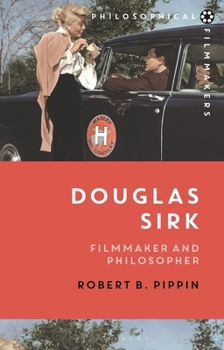Douglas Sirk: Filmmaker and Philosopher
Select Format
Select Condition 
Book Overview
It would be easy to dismiss the films of Douglas Sirk (1897-1987) as brilliant examples of mid-century melodrama with little to say to the contemporary world. Yet Robert Pippin argues that, far from being marginal pieces of sentimentality, Sirk's films are rich with irony, insight and depth. Indeed Sirk's films, often celebrated as classics of the genre, are attempts to subvert rather than conform to rules of conventional melodrama.
The visual style, story and characters of films like All That Heaven Allows, Written on the Wind and Imitation of Life are explored to argue for Sirk as an incredibly nuanced moral thinker. Instead of imposing moralising judgements on his characters, Sirk presents them as people who do 'wrong' things often without understanding why or how, creating a complex and unsettling ethics. Pippin argues that it this moral ambiguity and ironic richness enables Sirk to produce films that grapple with important themes such as race, class and gender with real force and political urgency. Douglas Sirk: Filmmaker and Philosopher argues for a filmmaker who was a 'disruptive not restorative' auteur and one who broke the rules in the most interesting and subtle of ways.Format:Paperback
Language:English
ISBN:1350195677
ISBN13:9781350195677
Release Date:April 2021
Publisher:Bloomsbury Academic
Length:168 Pages
Customer Reviews
0 rating





